Let's go through a scenario, You move to a new city and you don’t know where the nearest grocery store is.
You don’t beat yourself up — it’s normal. You only need ask people who are staying in the city before you, or you use Google Map to find it.
After you’ve been there several times, it’s highly likely that you won’t need to use Google Map any longer to find such place.
It’s the same with other places, like the nearest restaurant, or sports center — at first, you perhaps need to ask people, or use Google Maps, then you learn the locations yourself and no longer need to ask or use Google Map.
You learnt them but it’s not that you’re intentionally trying to memorize every road, every possible path to a certain destination.
There can be cases when you are only interested in going there once.
It’s the same with certain methods that you may need to use in a programming language.
New software developers may feel bad that they’re not memorizing sufficient syntax — they still need to refer to the documentation. They see this as a sign that they’re bad developers.
Here are a couple of common questions they may have when they start their journey into programming:
- How should I be able to learn all this syntax?
- How long will it take for me to master it and write without referring to the documentation?
When they’re able to memorize some frequently used syntax, they may think that they’ve become good at programing.
They get the impression that it’s the amount of a language or the number of programming languages and frameworks they are able to memorize that really matters.
To put things in perspective, let’s compare the syntax of finding the length of a string in different programming languages:
- seq.length, JavaScript lists, Java arrays.
- seq.size(), Java sequences, jQuery expressions (deprecated).
- len(seq), Python.
- seq.count(), Django querysets.
- SeqType'Length, Ada arrays.
- length seq, Haskell.
- (count seq), Clojure.
- sizeof(seq)/sizeof(seq[0]), C, statically allocated.
- strlen(seq), C, null-terminated.
A survey was conducted by Stack Overflow across 57,910 professional programmers shows that about a whooping 90% consult Google when stuck with a problem.
These experts have an average range of 5 – 19 years of coding experience.
Don’t be surprised to find out that professional programmers use Google way more than beginners.
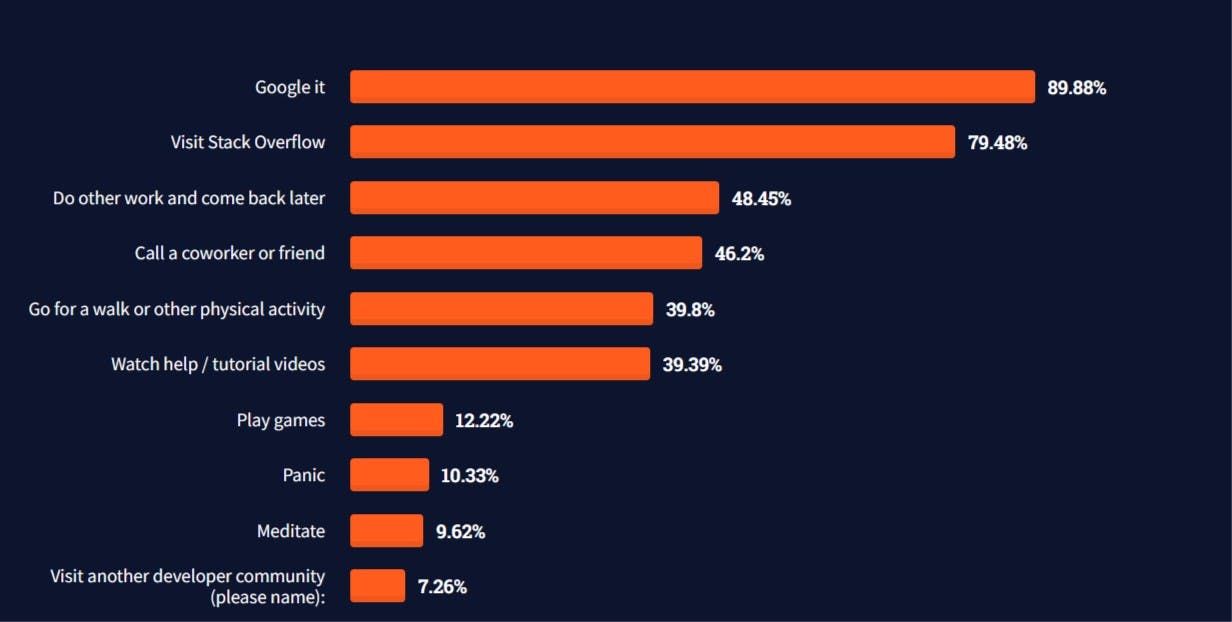 Does this make them less of a programmer?, Absolutely not.
Does this make them less of a programmer?, Absolutely not.
They simply understand that they don’t need to memorize every piece of code and they rely on research to get their problems solved.
Research is an important skill required to be a good programmer and also an integral part of your software development journey.
Is Syntax So Important That I Have to Memorize It?
To answer this, let’s check what some senior developers say.
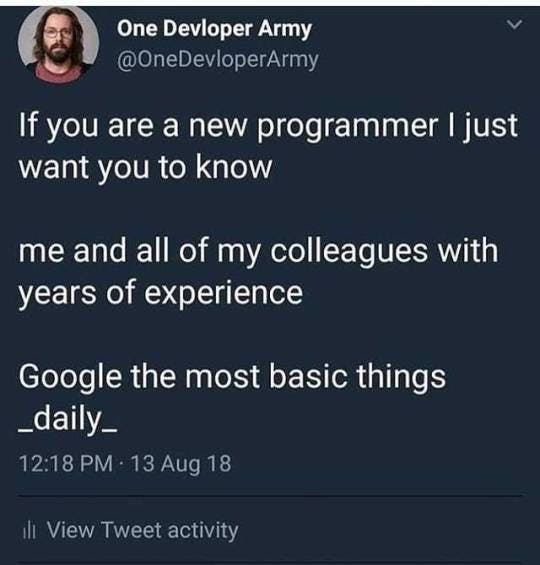
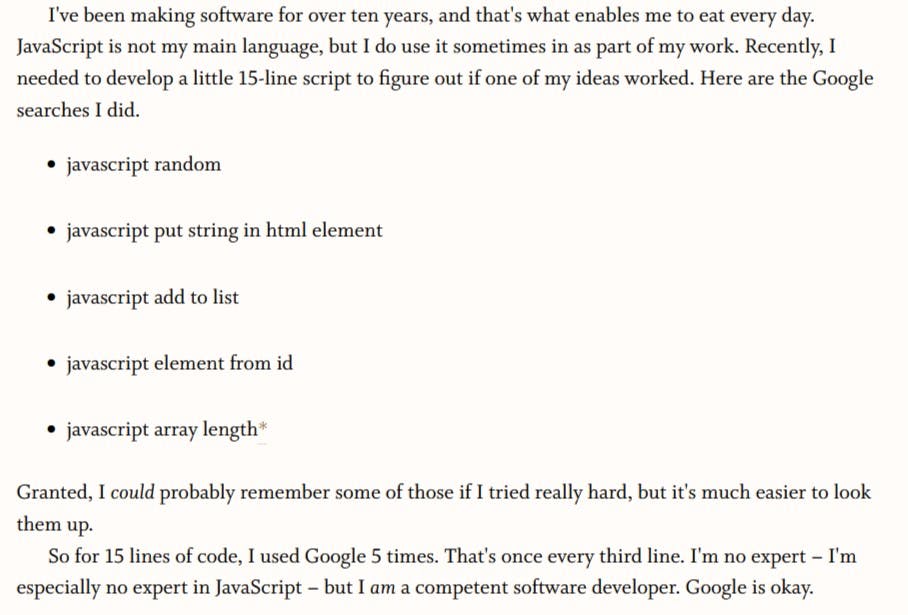
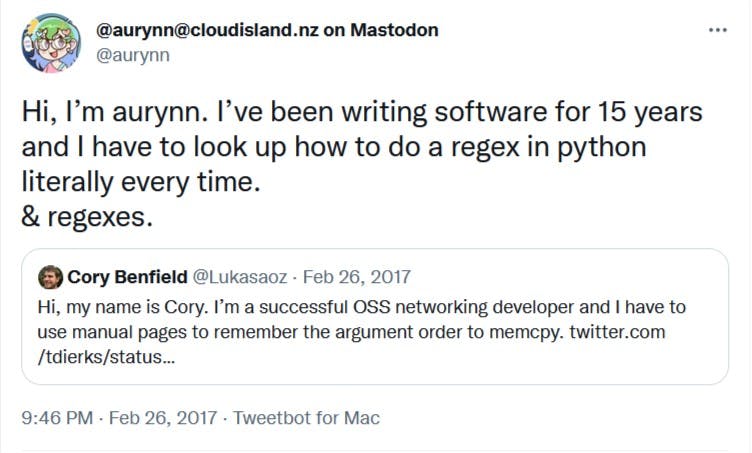
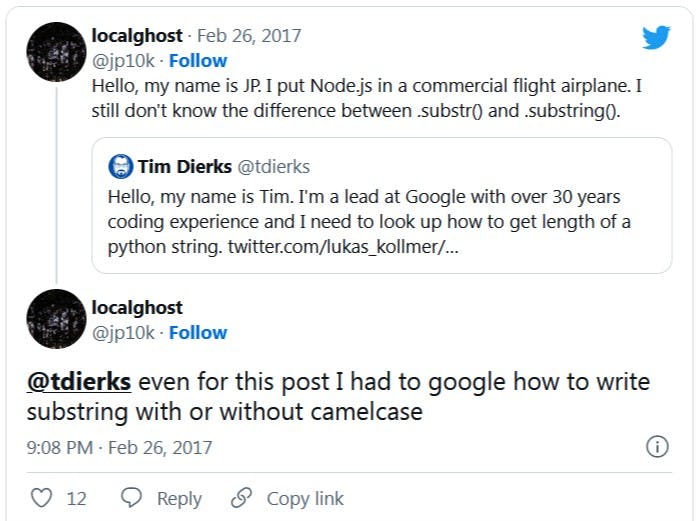
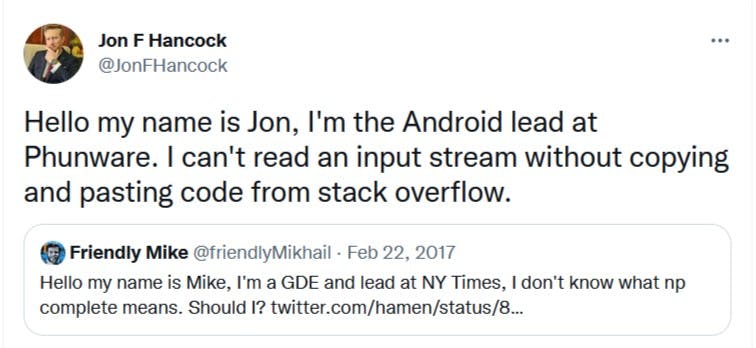


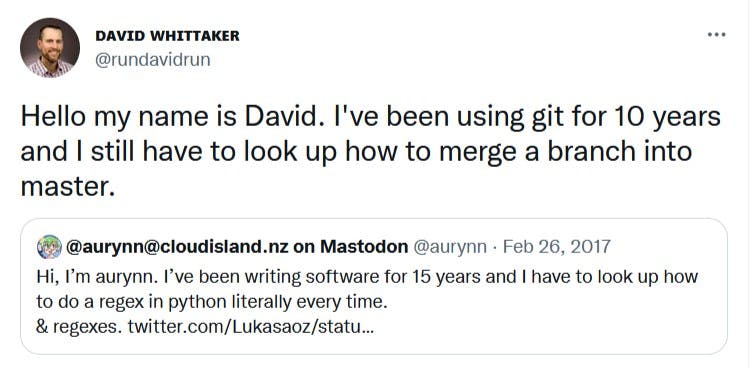

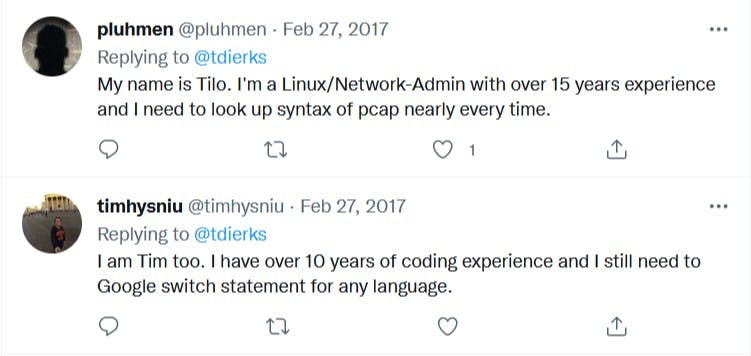
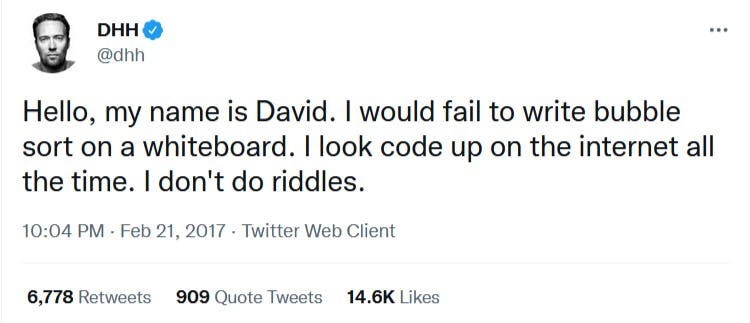



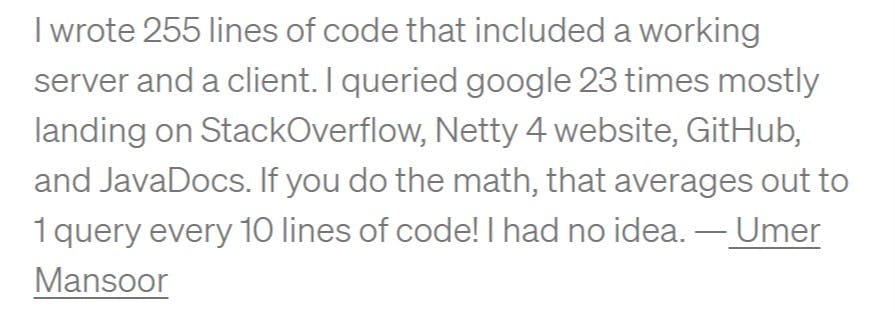

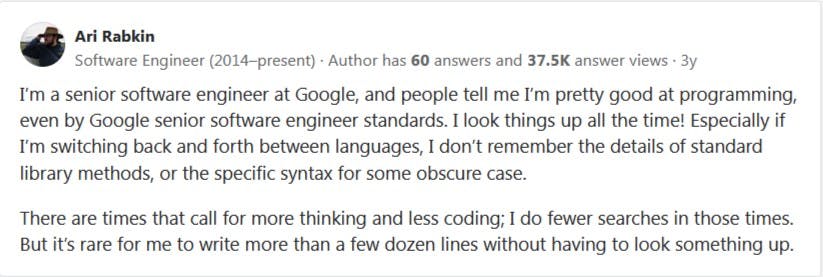

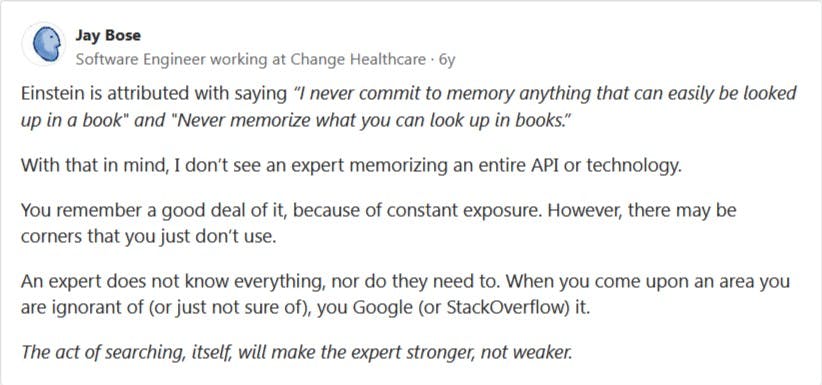
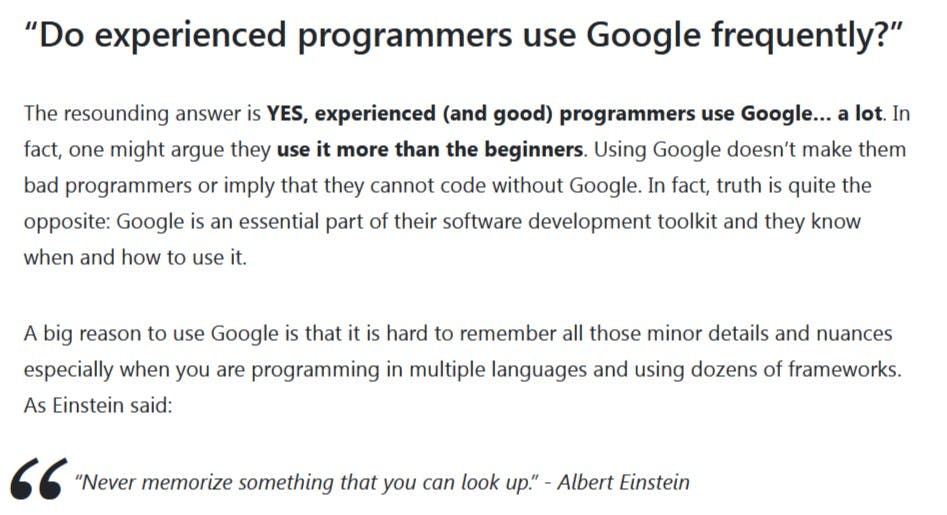
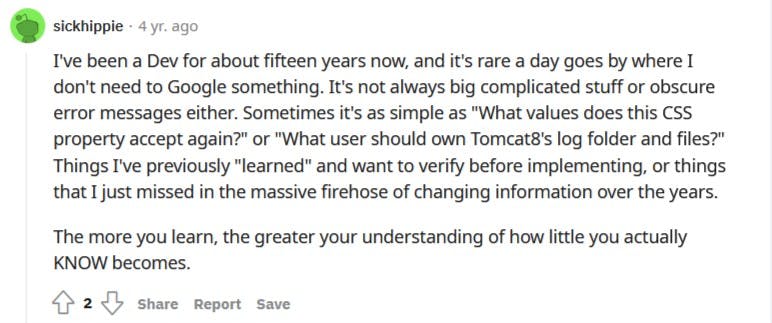

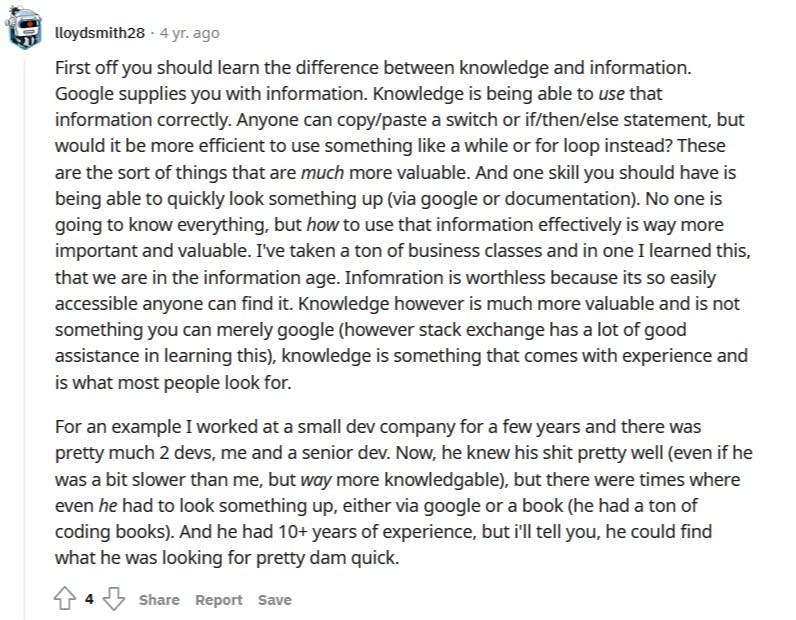
These admissions should give you courage — you don’t have to be ashamed that you can’t remember every detail of the syntax.
This is something that many junior developers may be concerned about. The truth is, you really do not have to memorize everything as you go.
According to Albert Einstein, “Never memorize something that you can look up.”
Developers are not paid for what we remember, they pay us for our ability to solve problems. And those are not the same. My ability to solve a problem is given by both what I know, what I can imagine and my capacity to synthesis the solutions of others.
Let's end it here with a story by Carey Gister
"I once knew a man who was a very successful attorney. His office in his house in Princeton was filled with thousands of law books. The first time I was there I asked him if he knew what was in all of those books (I was pretty young and inexperienced at the time). "No.", he responded. "Why then, do people pay you $500 / hour?", I asked. "Because I know where to find what they need to know and, more importantly, I know what it means."
That conversation altered my relationship to what I know and how I approached my profession. I hope it makes a difference for you. Don't work on what you know, work on knowing how to find it and what it means."
Thank you for reading.
Make sure to save this for the next time you are facing impostor syndrome, and don't forget to share with your buddy developers.
Connect with me on linkedIn https://linkedin.com/in/lawal-afeez
References:
- https://news.ycombinator.com/item?id=11603078
- https://www.quora.com/Do-expert-programmers-use-Google-frequently-when-coding
- https://betterprogramming.pub/if-you-want-to-be-a-senior-developer-stop-focusing-on-syntax-d77b081cb10b
- https://www.reddit.com/r/learnprogramming/comments/9sgprm/is_it_normal_to_be_googling_everything/
- https://two-wrongs.com/how-much-does-an-experienced-programmer-use-google

